Seema Deo

Subscribe to read full article
This section is for paid subscribers only. Our subscription is only $37/- for one full year.
You get unlimited access to all paid section and features on the website with this subscription.
Not ready for a full subscription?
You can access this article for $2 , and have it saved to your account for one year.
- Real Name: Nalini Saraf
- Born: 27 March 1942 (..)
- Died: 24 August 2023
- Primary Cinema: Hindi
- Spouse: Ramesh Deo
- Children: Ajinkya Deo, Abhinay Deo
Veteran actress Seema Deo, known for her performances in films such as Jagachya Pathivar (1960), Varadakshina (1962), Juna Te Sona (1967), Anand (1971), and Kora Kagaz (1974), acted in over 80 Hindi and Marathi films in the course of her career, spanning more than six decades from the black-and-white through the colour era. While she featured in a range of lead roles in Marathi cinema, she performed mainly in supporting roles in Hindi films. Her gentle manner and warm smile were well-suited to the roles of sister, daughter-in-law, mother or aunt that she often essayed on screen. A protégé of the prominent actor-filmmaker Raja Paranjape, she credited him for her career, saying in an interview, “Whatever I could achieve in my career, it’s all because of my guru Raja Paranjape. He not only taught me to act but also trained me so vigorously that it became very natural.” While her list of small roles in Hindi is long but not impressive, in Marathi cinema, she carved a reputation for being an actress who brightened the image of the homely, good woman. Her husband, actor Ramesh Deo, was a veteran of Hindi and Marathi cinema.
Originally named Nalini Saraf, she was born on 27 March 1942 in Girgaum, a neighbourhood in South Bombay, where she was brought up. As author Amborish Roychoudhury writes in Outlook India, “Nalini Saraf was barely 15 years old, and already a breadwinner. Her family had fallen on hard times. Her father had passed away, and there were mouths to feed. She was the eldest of four children, and her passion for dancing brought in a meagre amount of money.”
Living with her mother and siblings in a chawl in Girgaum in the late 1950s, a well-wisher of the family suggested to her mother that she be allowed to work in films. As actors in those days worked under a fixed contract and were paid a monthly salary, this meant a regular source of income. Hearing that Tolaram Jalan’s famous Filmistan studios had just started making Marathi films, young Nalini saw an opportunity for a career in acting. Despite the uncertainty, Nalini was accompanied by her mother while they headed to Filmistan Studios. The two boarded a local train at Charni Road station; at the next station, as luck would have it, a young man boarded the train at Grant Road. Nalini recognised the well-built youth who had sat right in front of them; he was none other than Ramesh Deo, already well-known for his villainous roles in Marathi films. Her mother, however, curtly instructed her not to look ‘that villain’. At this point, an affronted Deo told the elderly woman, firmly yet politely that he only played a villain onscreen but if treated with disrespect, he would indeed become a villain in real life! Deo himself was headed to Filmistan in the hope of bagging the second lead in director Datta Dharmadhikari’s Aaliya Bhogasi; the film would release in 1957. It was the fragrance of Nalini’s jasmine gajra that had drawn him to sit opposite her and her mother in the train compartment. They went their separate ways at the studio, but would later reconnect in life.
Nalini’s first meeting with a filmmaker at Filmistan was not very encouraging. Feeling intimidated, she felt that the profession was probably not for her after all. However, as luck would have it, she met a neighbor who advised her to meet the famous Marathi filmmaker Raja Paranjape. It was Paranjape who molded her for a career in acting. She also had to choose a suitable screen name as there was already the popular Nalini Jaywant in films. Seema, the name suggested by her brother, was to be that name, based on the Nutan-starrer Seema of 1955; Nutan was also Nalini’s favourite actress.
Seema Saraf would feature in the Filmistan Marathi production Aaliya Bhogasi (1957), starring Raja Gosavi, Jayshree Gadkar, Ramesh Deo, Raja Salvi and others. Incidentally, she played the sister of Ramesh Deo in the film; both she and Ramesh Deo had signed on individual contracts with Filmistan studios.
Jagachya Pathivar (1960), directed by Raja Paranjpe, saw her play a key role. The Marathi language drama genre film starred Raja Paranjpe himself along with Raja Gosavi, and Ramesh Deo. The story revolved around Sakharam, who wanders around looking for a job. In due course, he goes to a beggars’ settlement. Here he encounters a young blind girl, who survives by singing and dancing. Sakharam supports her. The girl happens to be the daughter of a rich man. Eventually, she is reunited with her parents, who take her away. But she also takes Sakharam along with her. His cycle of bad luck ends and good days finally come to Sakharam.
In 1962, she would star in the Marathi language film Vardakshina, a comical story of a hapless, orphaned, poor tenant, Shantaram, who travels all the way from Poona to Bombay; then to Hyderabad and finally to Vasai to pick a suitable groom for his neighbour, Krishna Apte, the second of three daughters of retired school-teacher, Apte. At Vasai, they find Kamlakar Varde, who agrees to get married to Krishna for the agreed dowry of Rs 5000 plus expenses. However, as Kamlakar and Krishna have both fallen in love, Apte must deal with selling his house, belongings, etc. to pay for the dowry, as well as try and meet new demands of the groom, his father and their relatives. The singular speech Seema delivers in the film was praised for the strength conveyed in her voice.
Molkarin, the 1963 Marathi film, saw her play the role of a 'modern' daughter-in-law in the Yeshwant Pethkar directorial, which was nominated for Sulochana's performance. She played Malu, a modern girl, opposite Bal (Ramesh Deo), who belongs to a conservative Brahmin family, in this family drama.
In 1967, she starred in the Yeshwant Pethkar directorial Juna Te Sona opposite Ramesh Deo. He played Mohan, a modern boy from a conservative Marathi family and of marriageable age whose father is against modern culture and love marriage and wants a devoted daughter-in-law who would take care of the house and family. Mohan falls in love with a modern girl Manda (Seema Deo) and his mother goes against her husband and supports his love marriage. Mohan and Manda opt for a registered marriage and on the very first day of marriage, Manda attends a ballroom dance with her friends leaving Mohan alone. Mohan then realises that his father was right and he should have married a girl of his choice. Mohan and his mother humiliate Manda for dancing with Ashok in ballroom dance and she decides not to return home but file for a divorce.
It was while she was shooting for a small role in Vasant Joglekar’s film Aanchal (1960), that Seema had received a call from the production office of noted filmmaker Bimal Roy. Initially presuming it be a mistake, it actually turned out to be that Roy wished to cast her in Prem Patra which released in 1962. It was apparently Nanda, her co-star from Aanchal, who had recommended her strongly for the film. Apparently, when Roy was told that Raja Paranjape was her guru, he stood up in respect, adding that considering she was a protégée of Paranjape’s, he should sign her on immediately.
Prem Patra (1962) would mark her Hindi film debut. This Roy directorial starred Sadhana and Shashi Kapoor. The plot revolved around an embittered Arun Kumar Mathur (Shashi Kapoor), who, while studying in medical college, has a misunderstanding over a love letter with Kavita Kapoor (Sadhana), and must leave the college. Later, Kavita learns that it was not Arun's fault; however, Arun has already left town. Meanwhile, Arun's marriage is arranged with Saroj Chowdhary (Seema Deo), who also happens to be a distant relative of Kavita. When Arun loses his vision in an accident, Saroj is unable to go and tend to him, and Kavita takes her place. Kavita does not reveal her identity to Arun, letting him think that she is Saroj. She discovers that Arun still despises her, Kavita. Matters threaten to reach a head when the time nears to remove the bandages off Arun’s eyes.
On the personal front, she and Ramesh Deo, who was 12 years her senior, had kept running into each other as they worked in the studios and sometimes the same film sets. Love blossomed. Sometimes they played siblings, at other times a romantic couple and occasionally even rivals. Story has it, while filming an intense scene in which the pair were at loggerheads, Ramesh, who essayed the villain, had to say a nasty line to Seema. She had to slap him across the face in response; however, she needed six retakes as she simply wasn’t delivering the slap with the required vehemence. He taunted her asking whether she was slapping his cheek or caressing it. Incensed, when it was time for the seventh time, she slapped him so hard across the face, he forgot his lines!
The much in love couple dated for four years. They only tied the knot after Seema completed her mission of collecting sufficient money via her earnings from acting in films, to buy her mother and siblings a decent house. It was only after this that the pair tied the knot on 1 July 1963 in Kolhapur, Maharashtra. She would provide ample support to him both on and off screen. On the occasion of their 50th wedding anniversary in 2013, they renewed their marital vows at a ceremony attended by celebrities like Anil Kapoor, and Hema Malini, amongst many others. On their 56th wedding anniversary, their son Abhinay tweeted, “In a day and age where friendships, relationships, love even movies are celebrated when they hit a 50 DAY mark, here is a couple that hits the 56 YEAR mark today...Happy anniversary Aai Baba.”
Seema would feature onscreen with her real-life husband in a number of films during the 1970s and 1980s. One of the key films they featured in together was the Hrishikesh Mukherjee award-winning Hindi film Anand (1971), starring Rajesh Khanna and Amitabh Bachchan. Rajesh Khanna apparently put Seema—nervous about sharing the screen with the reigning superstar of the time—at ease by chatting with her in Marathi, which he spoke fairly well. Khanna also revealed to her that in his struggling days he would hang around the Irani restaurant at Girgaum to catch a glimpse of his favourite star - none other than Ramesh Deo! In the film, she played Suman Kulkarni, wife of Dr Prakash Kulkarni, who treats the imaginary illnesses of the rich and uses that money to treat the poor.
In Hindi cinema, she and Ramesh Deo were often cast as a couple, though they also featured separately as supporting artistes in several films. Films they did together include hits such as Saraswatichandra (1968), and Dream Girl (1977).
After breaks for the birth of their two sons, Ajinkya Deo and Abhinay Deo, Seema Deo continued to work in films. She even did some leading roles with other leading men, such as the 1977 comedy drama Yehi Hai Zindagi directed by K S Sethumadhavan, which saw her feature opposite Sanjeev Kumar playing Mrs Gayetri Narayan to Kumar’s Anand Narayan. The film also featured Utpal Dutt, Vikram Gokhale and David Abraham.
Her notable films include Bhabhi Ki Chudiyan (1961), Apradh (1972), Bezubaan (1982), Koshish (1972), Yehi Hai Zindagi (1977) and Sansar (1987). Some of the many films she acted in over the decades include College Girl (1978), Jyoti Bane Jwala (1980), Haathkadi (1982), Mujhe Insaaf Chahiye (1983), Pyar Jhukta Nahin (1985), Mard (1985), Benaam Badsha (1991), Kunku (1994), and Jeevan Sandhya (2021).
Seema Deo passed away at her Bandra home on 24 August 2023, aged 81; her husband had passed away the previous year in 2022 at the age of 93. She had been suffering from dementia followed by Alzheimer's. She is survived by two sons – actor Ajinkya Deo and filmmaker Abhinay Deo. While Ajinkya Deo has featured in films such as Sansar (1987), Indrajeet (1991) and Aan: Men at Work (2004), Abhinay Deo is a director known for Delhi Belly (2011), Game (2011 ), and Blackmail (2018).
References
https://indiancine.ma/IFL/info
https://english.jagran.com/entertainment/marathi-cinema-legend-seema-deo-dies-at83-10095805
https://www.imdb.com/title/tt0252079/
https://www.youtube.com/watch?app=desktop&v=c-iYSXhYvyw
https://www.shethepeople.tv/film-theatre/ramesh-deo-seema-deo-love-story/
-
Filmography (55)
SortRole
-
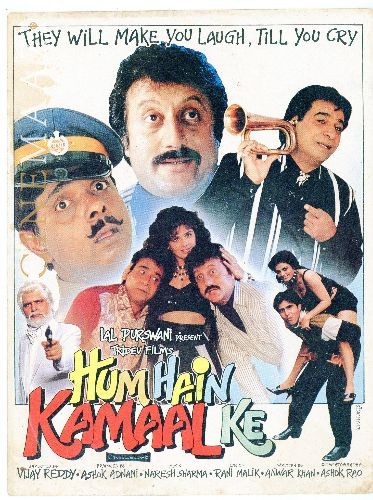
Hum Hain Kamaal Ke 1993
-
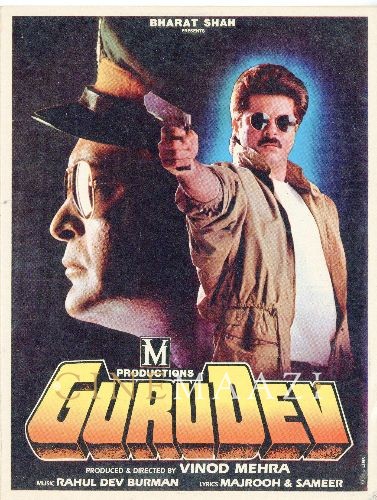
Gurudev 1993
-

Deedar 1992
-
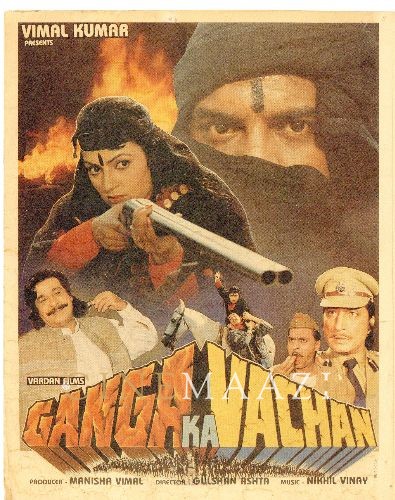
Ganga Ka Vachan 1992
-
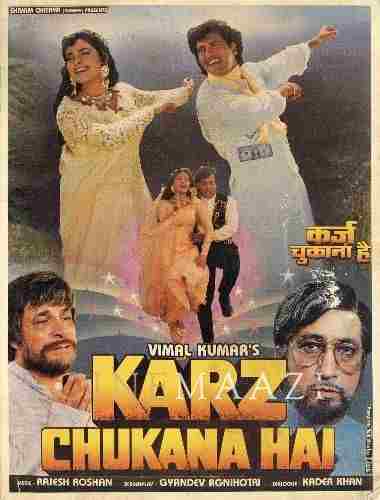
Karz Chukana Hai 1991
-
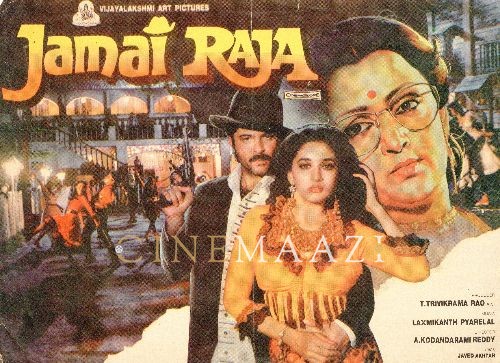
Jamai Raja 1990
-
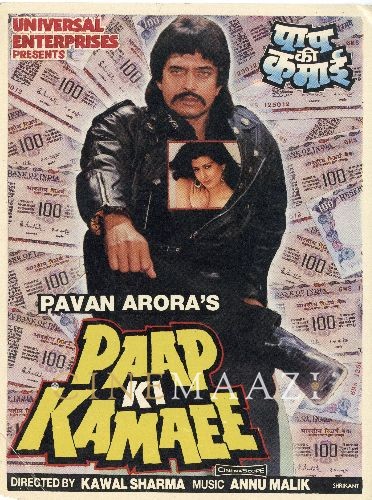
Paap Ki Kamaee 1990
-
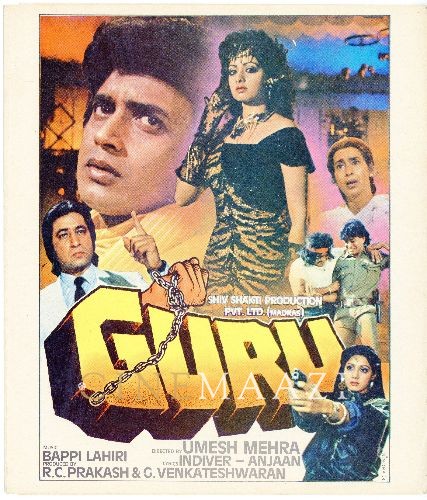
Guru 1989
-
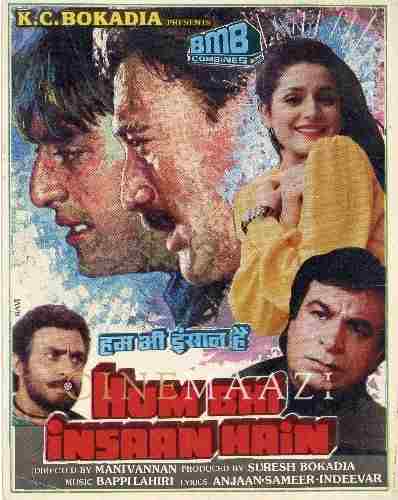
Hum Bhi Insaan Hain 1989
-
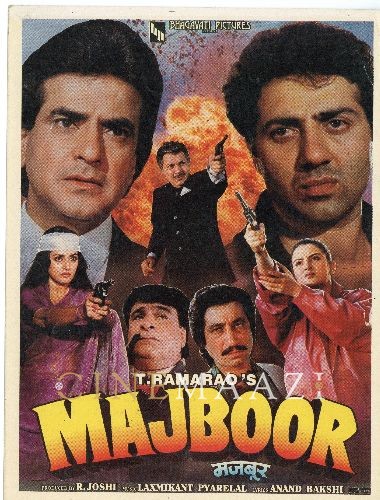
Majboor 1989
-



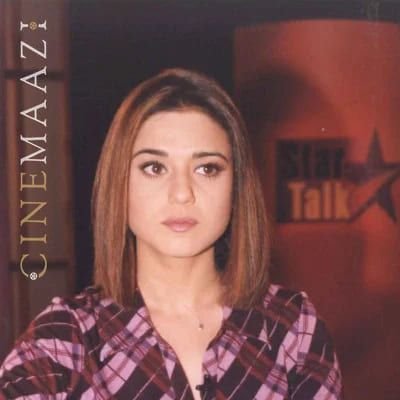
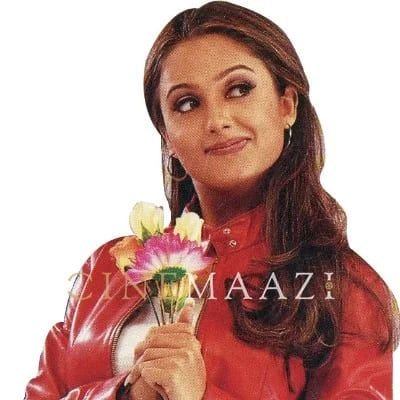
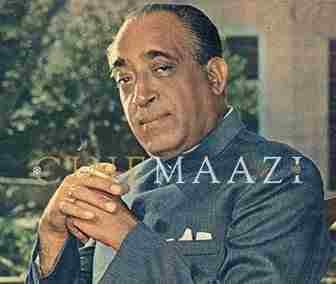
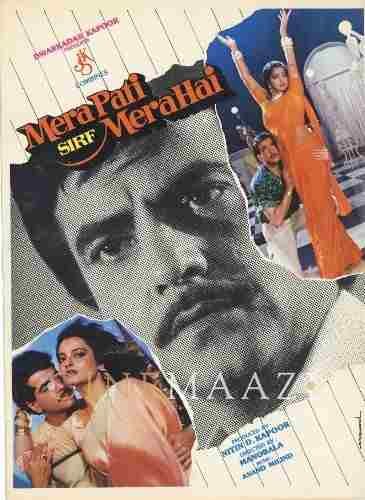
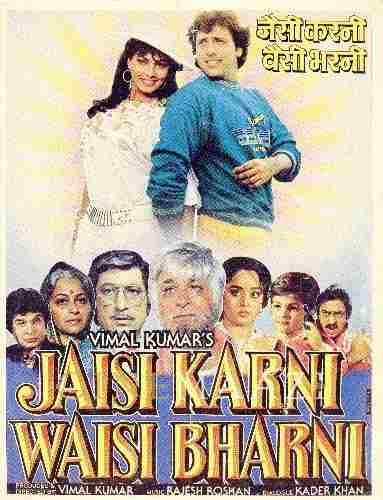


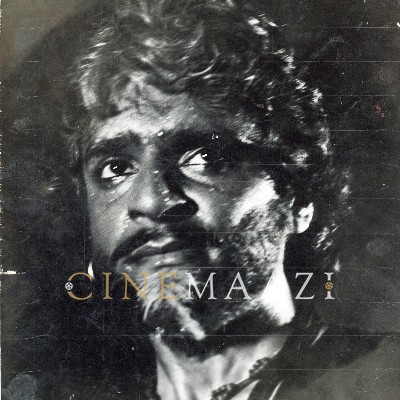


.jpg)



